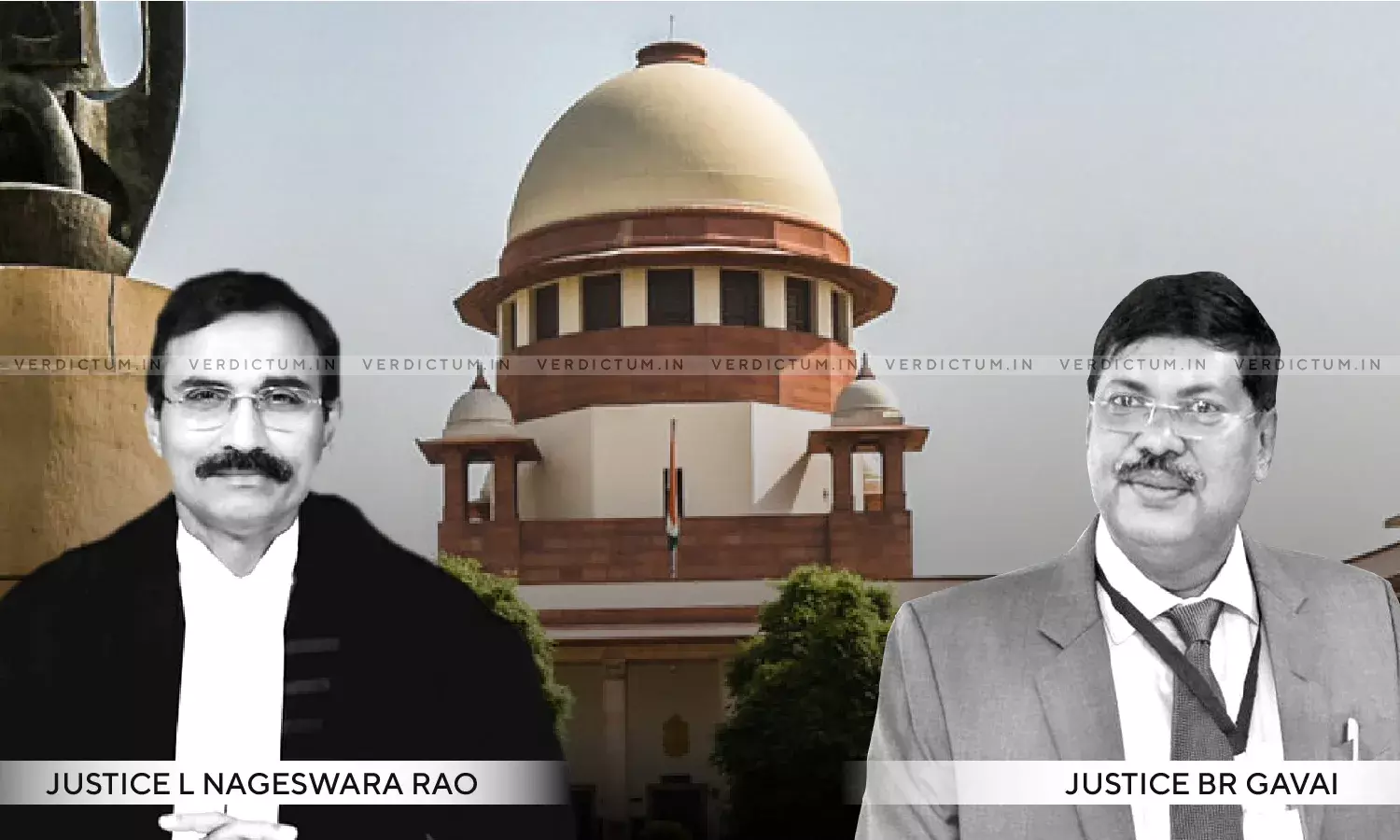Arbitral Tribunal Would Cease To Have Any Discretion When Parties Agree Otherwise - SC In DAMEPL v. DMRC
The Supreme Court recently dismissed an appeal preferred by the Delhi Airport Metro Express Private Limited which was against the Delhi High Court order in an execution petition regarding the sum awarded under Section 31(7)(a) of the Arbitration and Conciliation Act of 1996 in a contract formed with the Delhi Metro Rail Corporation.
The Bench held, "An important aspect that has to be taken into consideration is that the 1996 Act itself emphasizes on party autonomy. As such, the legislative intent is clear that when the parties have agreed to the contrary on any of the aspects as mentioned in clause (a) of subsection (7) of Section 31 of the 1996 Act, the Arbitral Tribunal will cease to have any discretion and would be bound by an agreement between the parties."
The Apex Court bench comprising Justice L. Nageswara Rao and Justice B. R. Gavai heard the petition the facts of which were that Delhi Airport Metro Express Private Limited had entered into a concession agreement with the Delhi Metro Rail Corporation after being declared a successful bidder. As per the agreement DMRC was to carry out the civil works and DAMEPL was to carry out the balance works. As per Article 29 of the Concession Agreement in the event of termination then DMRC was liable to make termination payment. During the course of operations of the project, a dispute arose between DAMEPL and DMRC, and DAMEPL terminated the contract by a Termination Notice.
Senior Counsel Mr. Harish N. Salve appeared for the Appellant while Senior Counsel Mr. Parag P. Tripathi appeared for DMRC before the Apex Court.
The DMRC referred the dispute to Arbitration and an arbitral award came to be passed. DAMEPL paid a stamp duty of Rs. 4,72,20,000 on the award. Certain interim awards were also passed in the interlocutory proceedings in the Delhi High Court. DMRC aggrieved by the award filed a petition before the Delhi High Court challenging the arbitral award. The Single Judge of the Delhi High Court upheld the arbitral award. The judgment of the Single Judge was challenged before the Division Bench of the Delhi High Court which was partly allowed. Aggrieved by the order DAMEPL appealed before the Supreme Court where the decision of the Division Bench of the High Court was set aside.
The DAMEPL immediately filed an execution petition before the Delhi High Court for enforcement of the Arbitral Award. The Single Judge bench in its impugned order issued certain directions with regard to the payment to be made by DMRC. In the same proceeding, a contention was raised by the DAMEPL that the sum would include interest for a period from the date on which the cause of action arose to the date on which the award was made but this contention was rejected by the Single judge which led to the appeal in the Supreme Court.
The Apex Court after hearing both the parties observed that, "the part which deals with the power of the Arbitral Tribunal to award interest, would operate if it is not otherwise agreed by the parties. If there is an agreement between the parties to the contrary, the Arbitral Tribunal would lose its discretion to award interest and will have to be guided by the agreement between the parties. The provision is clear that the Arbitral Tribunal is not bound to award interest. It has a discretion to award the interest or not to award. It further has a discretion to award interest at such rate as it deems reasonable. It further has a discretion to award interest on the whole or any part of the money. It is also not necessary for the Arbitral Tribunal to award interest for the entire period between the date on which the cause of action arose and the date on which the award is made. It can grant interest for the entire period or any part thereof or no interest at all."
The Court opined that if clause (a) of subsection (7) of Section 31 of the 1996 Act is given a plain and literal meaning, the legislative intent would be clear that the discretion with regard to grant of interest would be available to the Arbitral Tribunal only when there is no agreement to the contrary between the parties.
The Bench further held that if the contention raised on behalf of the Appellant - DAMEPL is to be accepted, the phrase "unless otherwise agreed by the parties" would be rendered redundant and would become otiose.
The Court also held that each and every provision of the Statute has to be given effect to and so that every word has a place and everything is in its place.
The Court also observed that "It could thus clearly be seen that as per Article 29.8 of the Concession Agreement, the Termination Payment would become due and payable to the Concessionaire by DMRC within thirty days of a demand being made by the Concessionaire. It further provides that if the DMRC fails to disburse the full Termination Payment within 30 days, the amount remaining unpaid shall be disbursed along with interest at an annualized rate of SBI PLR plus two per cent for the period of delay on such amount. It can thus clearly be seen that Article 29.8 of the Concession Agreement deals with payment of interest on Termination Payment amount." The top court of the country thus while dismissing the petition held that, "We are therefore of the considered view that in view of the specific agreement between the parties, the interest prior to the date of award so also after the date of award will be governed by Article 29.8 of the Concession Agreement, as has been directed by the Arbitral Tribunal."
Accordingly, the Court dismissed the appeal and upheld the impugned order of the Single Judge.
Click Here to Read/Download the Judgment




